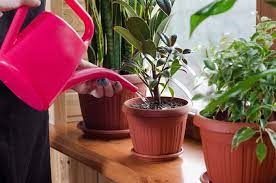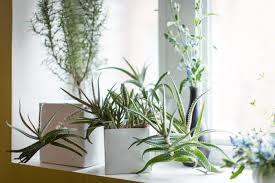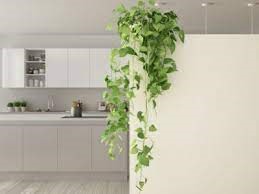Just because your indoor plants live in a temperature controlled climate, that doesn’t mean they are immune to the challenges of winter. Even indoors, plants can be affected by many winter stress factors such as fluctuating heat, dry air and less sunlight from shorter days. Here are some general tips to keep your indoor plants happy and healthy during the winter months:
- Change How Often You Water Your Plants

Believe it or not, house plants need LESS water during the winter season. Even though winter air is usually drier, plants don’t grow as quickly during cold months and some even go completely dormant. Because of this, they don’t need as much water. Overwatering can lead to root rot…and you don’t want that! Different plants have different watering needs, so you may want to do a little research to find out what your particular plants’ needs are. Keep in mind that surface soil may look/feel dry, but that does not mean the plant needs water. You should push your finger down about two inches into the soil to see if it feels dry and if it does, then it is time to water the plant. Save your plants from a cold, winter shock by using room temperature water.
- Control Humidity Levels
One of the biggest problems indoor plants face in winter is the drop in humidity levels. In a heated home, the humidity level can drop by 10 to 20 percent. Plants prefer about 50 percent humidity. Using a humidifier is a good way to create the right level for your plants. If you don’t have a humidifier there are some other ways to help. You can group plants close together for example. Plants release water through their leaves by transpiring, so grouping them together helps them to share that moisture. In addition, you can place them in bathrooms or the kitchen where they will absorb moisture from showers and cooking. Another option is to place your plants on or near a tray of water. Don’t place the plants directly in the water though. Use stones or pebbles in the tray and then place your pots on them. This effectively increases humidity without causing root rot.
- Keep Track of Temperature
Like people, plants like moderate temperatures. They are happiest with daytime temperatures between 65 to 75 degrees Fahrenheit and nighttime temperatures above 50 degrees Fahrenheit. Try to keep them away from cold drafts as well as sources of heat, such as radiators, ovens, fireplaces and electronic devices. Too much fluctuation in temperature can kill your houseplants right along with lengthy periods of heat or cold.
- Let the Sunshine In

Sunshine is so important to plants. During the winter, there are not only fewer hours of sunlight, but in addition, the rays come in at a lower angle. This means you may have to move your plants to a brighter spot in your home or even add some supplemental light. South or west-facing windows are best because they will remain sunny (depending on weather of course) all day. Just don’t move them too close to a frosty window where they might get a cold draft. When you water your plants, rotate them about a ¼ turn so that all sides of the plant receive sunlight. This will help the plant to grow more evenly. Make sure that you wipe down your leaves with a damp cloth to remove dust because dust can reduce the amount of light your plant receives.
- Don’t Feed the Plants
Most houseplants don’t need fertilizer in the winter since they aren’t growing as actively. If you feed them now, it may upset their natural cycle. You can stop feeding them until spring. When you start seeing signs of new growth, you can start fertilizing them again to give them a little head start in their growth.

If you have tropical plants, especially like vining climbers or trailers, they will still grow quite actively all winter, so they may still require some feeding. But still not as much as you would during active growing seasons.
Making these few adjustments will keep your plants happy and healthy through the winter season!
Are you thinking of buying a home or selling your current home in New River Valley, VA? Then it is time to contact Desi Sowers, your New River Valley, VA real estate resource! Give her a call today at 540-320-1328!
Photo Credits: businessinsider.com, realsimple.com, gardeningknowhow.com
